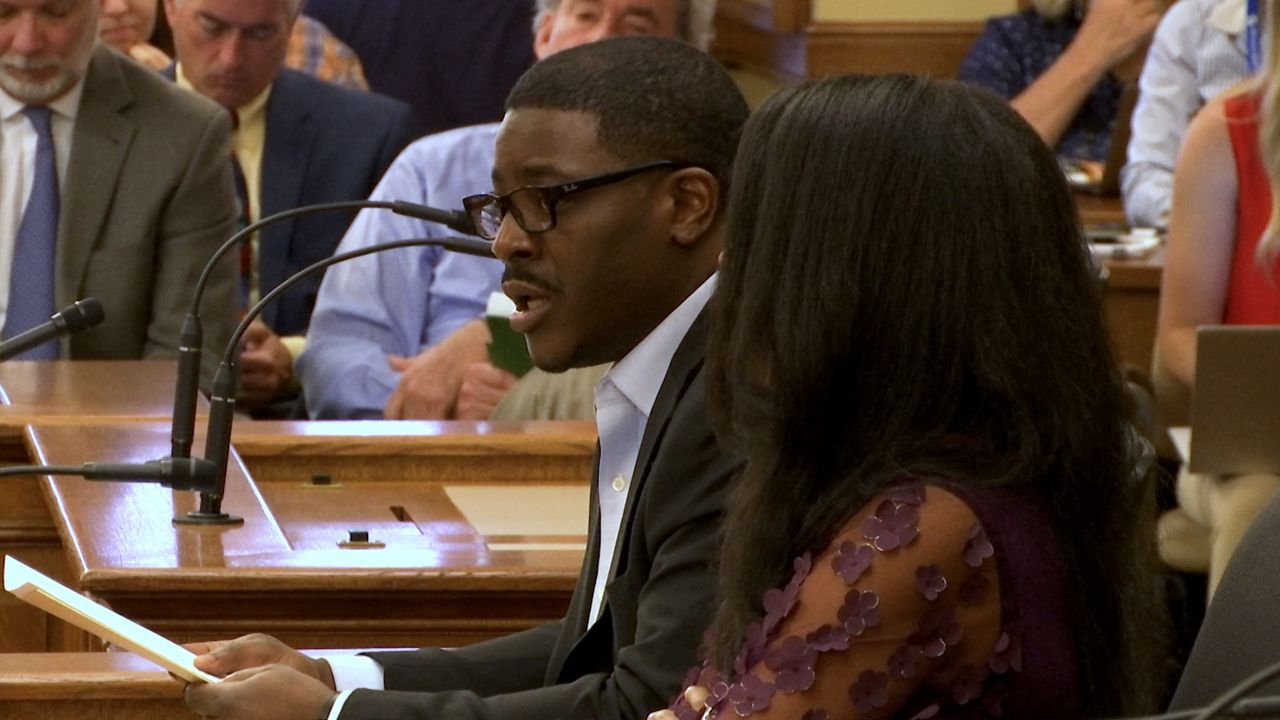MADISON, Wis. — After passing changes to how the state shares money with local communities, to help pay for critical services, work on the shared revenue bill moved from the Assembly to the Senate, where lawmakers held a public hearing Tuesday.
Last week, Republican Assembly Speaker Robin Vos seemed to draw a line in the sand when he said negotiations were “done” on shared revenue.
The problem, however, is one of the biggest changes the Senate could make to the bill, allowing Milwaukee to raise its local sales tax without going to referendum for voter approval, is exactly what local leaders have asked for.
Milwaukee Mayor Cavalier Johnson made the city’s position clear for lawmakers Tuesday during a public hearing held by the Senate’s Shared Revenue, Elections and Consumer Protection committee.
“I want local elected officials to make decisions about purely local matters,” Johnson said. “Common Council members are close to the communities they represent and can make informed and timely decisions on behalf of their constituents to move Milwaukee forward. A referendum, though, adds a significant element of uncertainty, and next year none of us want to revisit all the work, the hard work, that we’ve been doing to plan that has brought us to this point now.”
Other local leaders used their testimony to put into perspective just how dire the situation is for Milwaukee County, with pension costs consuming about a third of local taxes and a structural deficit expected to reach $109 million by 2028.

“We will have to make over $100 million in cuts to provide the same level of service that we do now, after already cutting approximately $300 million in the past decade,” Milwaukee County Executive David Crowley explained.
Republicans, who authored the bill, said perfect can’t get in the way of good when it comes to compromise.
“I do not see this as a bailout for Milwaukee by the state,” State Sen. Mary Felzkowski, R-Irma, said. “I see this as giving them the tools to solve their own issues because we’ve never been okay with allowing state taxpayer dollars to come to the aid.”
Senate Majority Leader Devin LeMahieu’s office said the goal is to have the bill on the floor for a full vote within the next couple of weeks.
Negotiations with Democrats are going well, so far, according to Senate Minority Leader Melissa Agard.
“My conversations with Senate Majority Leader LeMahieu have been productive and we both recognize the need for a sustainable solution," Agard said in a statement. "While Speaker Vos may have drawn a line in the sand, my caucus certainly hasn’t and we will continue to negotiate in good faith for the betterment of our local communities and our state.”
Any changes made by the Wisconsin Senate would have to be approved by the Assembly, and so far, leaders in that chamber don’t seem open to voting on the legislation again.


